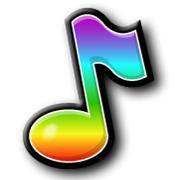 When I see people whose iPods are attached to their inner wrists via Velcro, I can’t help thinking of an intravenous drip. With every push of the “play” button, they’re delivering words and music directly to their systems.
When I see people whose iPods are attached to their inner wrists via Velcro, I can’t help thinking of an intravenous drip. With every push of the “play” button, they’re delivering words and music directly to their systems.
Even though I don’t have a Velcro attachment for my iPod, I, too, use music like a drug to help “check out” from the immediate environment. I’ve never quite outgrown the teenager who locks herself in her room with a boombox, except technology has given me the tools to take that lifestyle anywhere.
Driving on Lincoln with KT Tunstall’s “Suddenly I See” turned up too loud got me into a fender bender last week and cost me a headlight. I lay partial blame on the rain and the rollerblader who darted into the crosswalk, but the loud music didn’t help me focus on the road ahead. My ditziness isn’t limited to driving; Just crossing campus with my head in my playlist has gotten me into several near-collisions.
I’ve enjoyed many uplifting moments when just the right song over my speakers reminded me life is about more than just me. But I’ve also gotten rid of albums that seemed to have a negative impact. There was nothing wrong with the musical style or the lyrics in themselves; I just felt myself getting angrier in traffic after listening to them.
What seems to work is avoiding music that is inappropriate to my current situation. If I’m neither angry nor getting over a relationship, angry break-up songs don’t do anything but make me irritable. They also manage to pull me years back in time to my last angry break-up. At the same time, sentimental love songs, like romantic comedies, can be depressing while I’m single. Finally I realized I could just delete certain tracks from my iTunes instead of letting them pull me back into a stew of mixed emotions. It was amazing how my mood changed when I replaced them with bright, sunny songs that had no connotations—good or bad—previously attached.
Nick Hornby, in his fantastic book “High Fidelity,” wrote: “People worry about kids playing with guns, and teenagers watching violent videos; we are scared that some sort of culture of violence will take them over. Nobody worries about kids listening to thousands—literally thousands—of songs about broken hearts and rejection and pain and misery and loss. The unhappiest people I know, romantically speaking, are the ones who like pop music the most; and I don’t know whether pop music has caused this unhappiness, but I do know that they’ve been listening to the sad songs longer than they’ve been living the unhappy lives.”
I wonder why we don’t have more music about things like seeing a shooting star when you least expected it, or returning books to the library right before they are due. Maybe I should start writing songs about how great my best friend is, or the first Popsicle of the summer. Would anyone else listen to them, or are we all as infatuated with romance as the Top 40 radio stations seem to imply?








